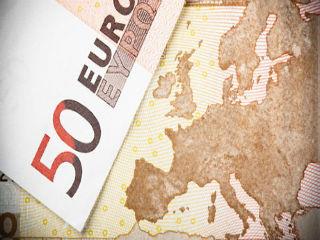by
Athanase Papandropoulos
"... A destroyed regime, with high expectations to have passed by, arose thanks to the cunning of some people whose major skill was the capability to escape from their own sinking ship..." This is the way that the well-known book of the later President of the French Republic, François Mitterrand, entitled “Le Coup d'Etat Permanent" started in 1964. A book which caused quite a buzz due to its sharp criticism of Gaullism and its inspirer, General Charles de Gaulle, who sought to institutionally change the election procedure of the President of the Republic of France.
In other words, François Mitterrand was trying to show that in parliamentary democracies “institutional coups” are possible without any turmoil and even under conditions of popular acceptance.
To that end, particularly since 2009 and in response to the financial debt crisis in Greece, we had a series of “institutional coups” - which resulted today to a non-typical but substantial exit from the European Union, where we conventionally remain. And the basic question arises: for how long?
Let us see, however, the facts as they are being recorded and perhaps then we can make some predictions. The current government, comprised by a political party which in 2009 had a 4% of the electoral power, is the product of both a dramatic economic situation in Greece and an institutional blackmail. It was risen in power thanks to the huge demagogic talent of its president and the people’s fatigue caused by a political system full of clientelism and preferential treatments.
By promising everything to everyone, Mr. Alexis Tsipras came to power willing to remain. And the problem was and still is how this can happen in a bankrupt economy. After bringing on elections back in January 2015 and his eventual victory, Alexis Tsipras had not many options available; immediately sign an agreement with EU counterparts and lenders and thus lose power in the eyes of those who supported him, provoke an institutional crisis – something that some of his comrades were actually looking for -, or cause a deep crunch in Greece with the secret hope that this could create major upheaval in Europe and the world economy. This was the Varoufakis’ plan.
As proved by the current events, he preferred the third option, which as we shall see, is multifaceted consisting of various stages that supplement each other.
The first step was rising and remaining in power by occupying vital administrative posts. The required time was gained and currently the capture is being accomplished.
The second step foresaw the implication of a crisis in the bilateral relations with the lenders, which would give the opportunity to cultivate -in public perception- the notion that there are "enemies" who conspire against Greece and pursue evil.
So, a referendum with no constitutional basis - as the Council of Europe also underlined, was proclaimed; a referendum where people were invited to answer with a "yes" or "no" to a multi-page text of a proposal which basically... was not on the table of negotiations anymore. However, this act served in multiple ways the government’s speculators, since it gave them the opportunity to close the Greek banks and breakdown the economy - a fact of enormous importance, as we shall see below.
Bank holiday is an acceptable EU legislative practice, but on the other hand, fundamental freedoms that constitute the “acquis communautaire” are lifted. Closing the banks with an Act of Legislative Content - signed by Mr. Varoufakis and not Mr. Draghi - Greek citizens “lost” their EU fundamental right, which is the FREE movement of capital. Thus, one of the three major principles governing the function of the European Union has been violated.
Even worse, by eliminating the free movement of capital, the government struck the free movement of people as well, making air travel to and from Europe extremely difficult. By closing the banks, free movement of goods and services - that is the backbone of the internal market - is also prevented. As a result, the most important component of the European project is being also repealed. With such actions, thousands of professionals and businesses are led to bankruptcy, a flagrant violation of human rights.
In practice, Greece is already outside the Eurozone and since this regime will last probably for long, people will get “addicted”. Addicted to the famous theory of Mr. Varoufakis regarding "Spartan life", this as being known from the communist regimes, leads to the so-called “communities of obedience." And in such a society, when our EU partners finally realize that Mr. Tsipras is not really willing to imply any reform in the country, the way for the drachma will be paved.
Consequently, we believe that with this government a “sword of Damocles” is hanging over the Greek people; the one of the slow but steady exit from the European project. We will be convinced to the contrary if during this week there is a government of national unity, with competent and serious people in the vital posts for handling the crisis. We hope the Greek society has acquired adequate experience of drachma gamblers and imposters.
This is the scenario that the former Minister of Finance began to implement, ignoring every European mechanism. Meanwhile, Mr. Varoufakis behaved insolently and with obvious depreciation towards his counterparts, except the Michel Sapin and the Wolfgang Schäuble, causing their anger. His true intentions though, were to cause a Grexit. And when this was revealed by his German counterpart, Mr. Varoufakis had already begun to lose the game.





 By: N. Peter Kramer
By: N. Peter Kramer
